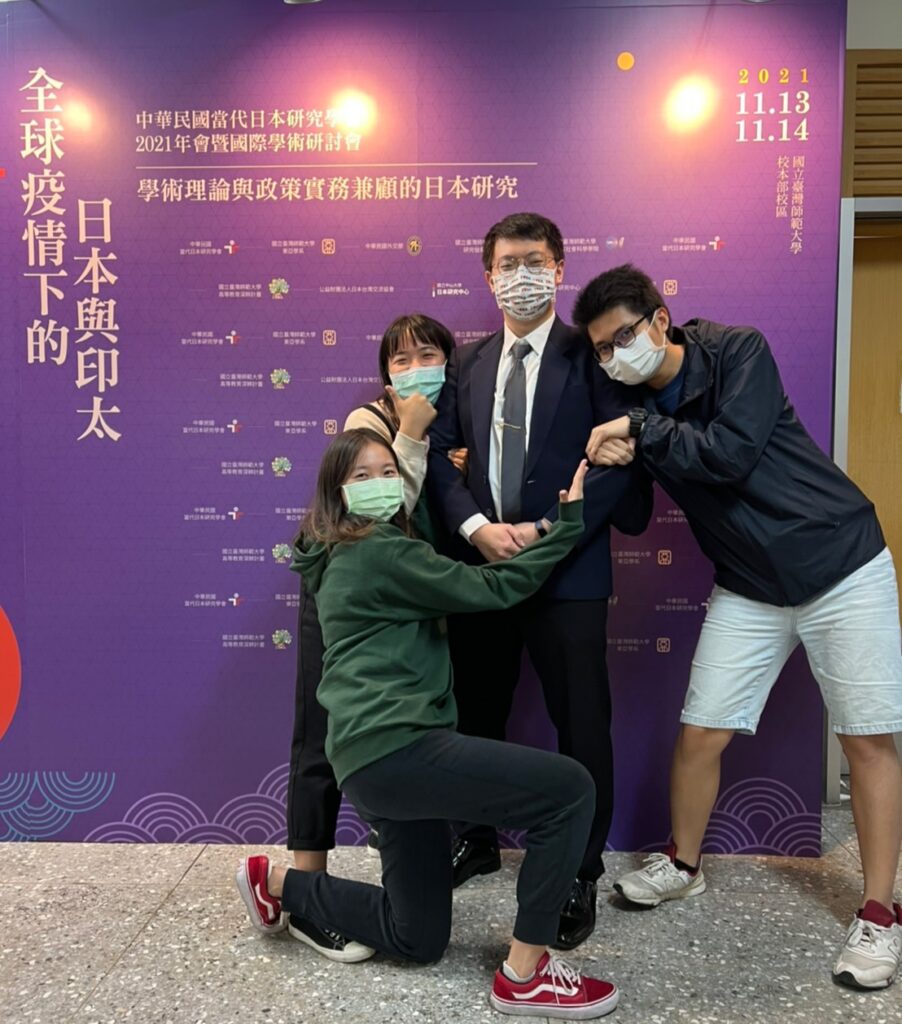Finding the Peculiarity in Normal: Be a Cross-Disciplinary Talent
Cheng-Yang Hsu 22′
Department of East Asian Studies
This is my fifth year of university life at National Taiwan Normal University. Everyone knows that our school aims to cultivate excellent teachers. However, the Department of East Asian Studies, where I am studying, does not go that way. Instead, it strengthens each student’s cross-disciplinary vision and knowledge.
Cross-disciplinary Learning Experiences
The courses of the Department of East Asian Studies cover two fields, i.e. “culture and its application” and “political economy and regional development”. For me, I personally prefer the fields of “Politics and Economics and Regional Development”. I have taken courses in Political Science, Economics, International Relations, Democratization, Globalization, International Trade, and Corporations` Management. In addition, I have taken cultural courses in Regional History, Immigrant Culture, Cultural Heritage, and Confucian culture.

I first realized the importance of cross-disciplinary learning probably when I took the course “Democratization in East Asia”. At first, I was quite curious about why the teacher arranged a week to talk about Confucian culture. Then I finally realized that Confucian culture, so far, has indeed affected the development of Eastern political systems. The spirit of patriarchy may be easier to foster the development of authoritarianism, Singapore’s Asian Values and political system in China are probably good examples to explain.
Another example in my studying was about social development of Southeast Asia. I find that the differences in colonial history and the formation of immigrant societies have created Southeast Asia’s multiculturalism in religion, language, etc. It shows a lack of consistency in Southeast Asia, and these cultural differences are also considered to be the hidden worries of development when the ASEAN was mentioned. It can be seen that the study of history and culture has also been applied to the discussion of geopolitics and international organizations.
That’s why I later added lots of courses in cultural fields. Because these cross-disciplinary learning experiences have taught me that even though I like to study political science the most, I still cannot only have a single-disciplinary perspective, I must combine the application of cross-disciplinary knowledge.
Language learning
It is quite common and necessary to study a second foreign language in our department. I think it is a pity that because of the double major, I only studied elementary Japanese. Many of my other classmates have taken advanced language courses and applied to exchange abroad in their third or fourth year of university. After their returning, they all shared their experiences of living and studying abroad, which made me feel quite yearning. Since our department provides many language learning experiences, I want to say sincerely that learning languages is imperative and being an exchange student could broaden the horizons fairly well.
In addition, I am honored to serve as a teaching assistant of an all-English course “Multinational Corporations’ Management Strategies” this semester. I highly recommend to take such this course more often, because foreign students sometimes attend it. It will be able to have a deeper understanding of the culture of other countries in the interaction. Furthermore, not only is it a good way to cultivate the ability of listening and reading English, but also a good opportunity to force yourself to speak English. “Dare to speak even though you might say something wrong.” As I see it, trying to express our own thoughts by speaking is absolutely a great English learning process.
Brief Summary
I recognized the importance of cross-disciplinary learning and cultivating international perspective in the Department of East Asian Studies. Why not take a look at what other courses can be taken? Maybe you can get unexpected results.